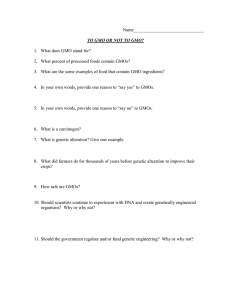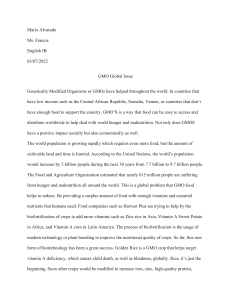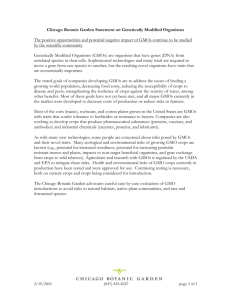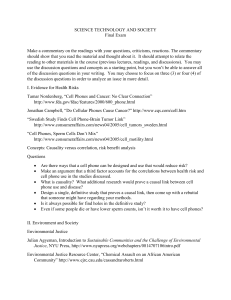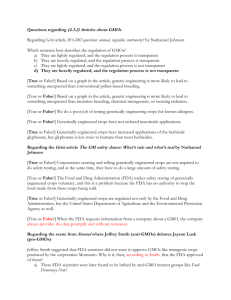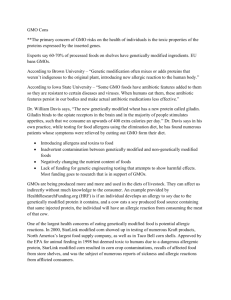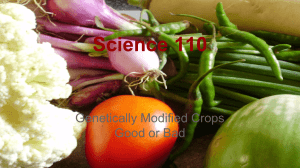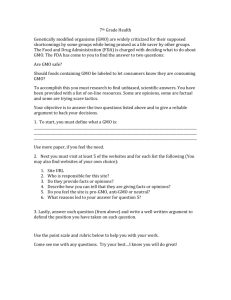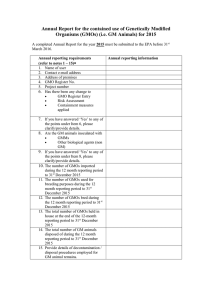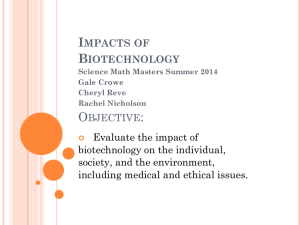gmo debate - University of Colorado Boulder
advertisement
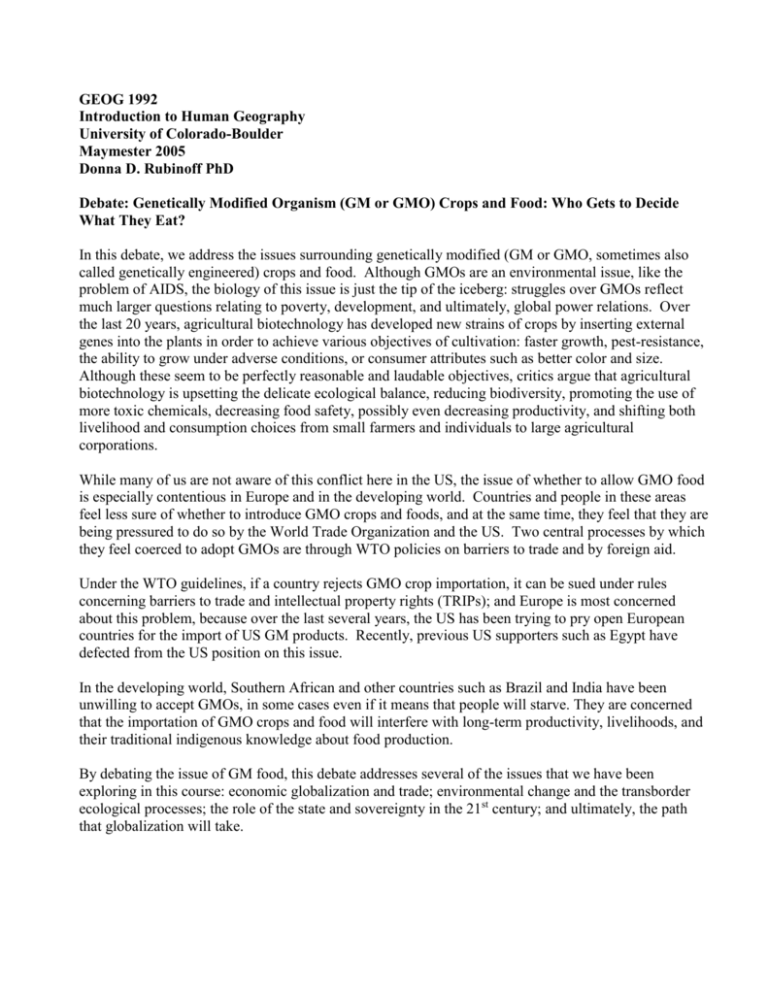
GEOG 1992 Introduction to Human Geography University of Colorado-Boulder Maymester 2005 Donna D. Rubinoff PhD Debate: Genetically Modified Organism (GM or GMO) Crops and Food: Who Gets to Decide What They Eat? In this debate, we address the issues surrounding genetically modified (GM or GMO, sometimes also called genetically engineered) crops and food. Although GMOs are an environmental issue, like the problem of AIDS, the biology of this issue is just the tip of the iceberg: struggles over GMOs reflect much larger questions relating to poverty, development, and ultimately, global power relations. Over the last 20 years, agricultural biotechnology has developed new strains of crops by inserting external genes into the plants in order to achieve various objectives of cultivation: faster growth, pest-resistance, the ability to grow under adverse conditions, or consumer attributes such as better color and size. Although these seem to be perfectly reasonable and laudable objectives, critics argue that agricultural biotechnology is upsetting the delicate ecological balance, reducing biodiversity, promoting the use of more toxic chemicals, decreasing food safety, possibly even decreasing productivity, and shifting both livelihood and consumption choices from small farmers and individuals to large agricultural corporations. While many of us are not aware of this conflict here in the US, the issue of whether to allow GMO food is especially contentious in Europe and in the developing world. Countries and people in these areas feel less sure of whether to introduce GMO crops and foods, and at the same time, they feel that they are being pressured to do so by the World Trade Organization and the US. Two central processes by which they feel coerced to adopt GMOs are through WTO policies on barriers to trade and by foreign aid. Under the WTO guidelines, if a country rejects GMO crop importation, it can be sued under rules concerning barriers to trade and intellectual property rights (TRIPs); and Europe is most concerned about this problem, because over the last several years, the US has been trying to pry open European countries for the import of US GM products. Recently, previous US supporters such as Egypt have defected from the US position on this issue. In the developing world, Southern African and other countries such as Brazil and India have been unwilling to accept GMOs, in some cases even if it means that people will starve. They are concerned that the importation of GMO crops and food will interfere with long-term productivity, livelihoods, and their traditional indigenous knowledge about food production. By debating the issue of GM food, this debate addresses several of the issues that we have been exploring in this course: economic globalization and trade; environmental change and the transborder ecological processes; the role of the state and sovereignty in the 21st century; and ultimately, the path that globalization will take. Team A: Small Farmers/Third World Countries Africa Action position: http://www.africaaction.org/docs03/tr0306b.htm Third World Network Report: http://www.twnafrica.org/news_detail.asp?twnID=374 Food First “Voices from the South” http://www.foodfirst.org/progs/global/ge/sactoministerial/voices.php Team B: Consumer groups/ Slow Food Organic Consumers: http://www.organicconsumers.org/ Slow Food: http://www.slowfood.com/ and http://www.slowfood.com/eng/sf_stampa/sf_stampa_dett_comu.lasso?idstampa=US_00163 Team C: US Government Go to the US Trade Representative Office agriculture and biotechnology pages. http://www.ustr.gov/ and search on agricultural biotechnology or GMO http://www.planetark.com/avantgo/dailynewsstory.cfm?newsid=21376 Team D: Monsanto (producer of many GMO crops) http://www.monsanto.com Go to main page and search on GMO crops Team E: European Union Go to the EU home page, and check topics Agriculture and Food Safety http://europa.eu.int/index_en.htm Also check the Eurobarometer public opinion surveys for reports on European attitudes towards GM food. http://europa.eu.int/comm/public_opinion/ Questions for each group to address: 1. Who are you and what is your role relative to GMOs? 2. What is your opinion of GMOs? How have you promoted this position? 3. Are GMOs dangerous or beneficial to people and/or the environment? Why? 4. Who should decide what they eat? How can we further this agenda? 5. How does the use of GMOs and policies surrounding their use change global geographies?
